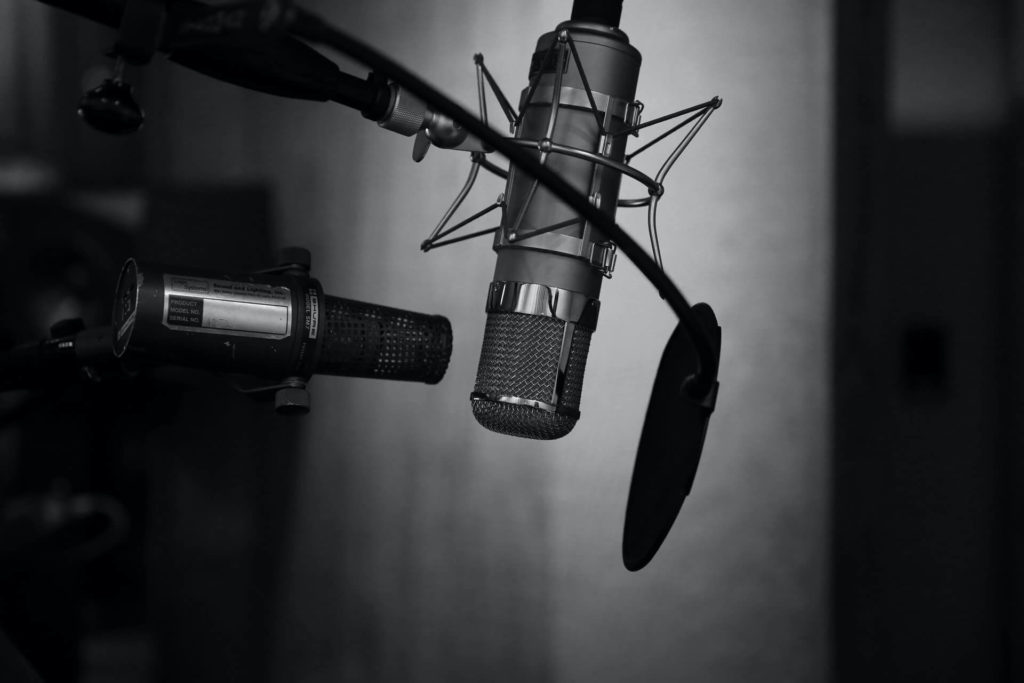If your business is producing a podcast or planning to start one, you’re on the right track. According to recent projections, there will be more than 144 million podcast listeners in the US by 2025. Worldwide, that number is more like 464.7 million, with a predicted 504.9 million by the end of the year. Not only are more people listening to podcasts, but they are spending more time listening to them as well.
Also, according to a study by the BBC, business podcasts increase brand awareness by as much as 89%, meaning that promoting your company through podcasts is a great way to connect with your customers. Still, business leaders must also make note of how they’re reaching and including diverse audiences. For big name brands, the stakes are high when it comes to ensuring that their content and media, including podcasts, are accessible. Offering accessibility solutions improves the reach of your podcast, while also helping you avoid sticky legal situations that are now popping up. Luckily, you can take a few simple steps to ensure you’re meeting current podcast best practices.
Podcast Accessibility & Reaching Broader Audiences
When creating your podcast, you might be focusing on generating ideas that will resonate with your audience, who to invite for interviews and other important matters. However, before your podcast goes live, you need to think about how people will access the content. Not everyone will be listening to each episode.
Individuals who are Deaf or hard of hearing rely on captions and transcripts when tuning in to a podcast or watching a video. Other individuals interested in your topic may also prefer reading because their surroundings aren’t conducive to listening. For instance, they may be on a train and lack headphones or at home and don’t want to disturb other members of their households.
If reaching more people is not enough of an incentive to ensure accessibility, remember that laws require equitable access for people with disabilities.
Recent Podcast Accessibility Lawsuits
Two major civil rights nonprofits, the National Association of the Deaf and Disability Rights Advocates, recently filed a lawsuit against some of the leading podcast platforms for failing to meet accessibility standards. Pandora, SiriusXM and Stitcher allegedly lacked proper audio transcription efforts related to their podcasts.
Representatives of the plaintiffs argue that failing to offer transcripts excludes those who are Deaf and hard of hearing from news, entertainment and educational programming in violation of the Americans with Disabilities Act (ADA). The ADA requires accessibility for people with disabilities in places of public accommodation. Lawsuits are increasingly demonstrating that this definition applies to virtual spaces, including websites.
Web Accessibility Podcast Considerations
Before tackling the issue of podcasts directly, you should first consider whether your overall website is accessible. Every private business with an online presence should review the accessibility of their site, which means looking at their font style and size, their colors and other issues that may create challenges for people with disabilities. Colors that prevent people with low vision or color blindness from navigating the website are one example of how your site could be inaccessible and put you at risk of liability.
Another critical consideration is whether people can use screen readers to access your content. Without such features, the site may exclude those who are Blind.
When it comes to B2B podcast best practices, remember that the public will expect sophisticated businesses to adhere to the law and invest in accessibility solutions. Naturally, transcripts are a critical accessibility tool for every podcast, large and small, but larger corporate producers are more likely to face scrutiny for their shortcomings. As the lawsuit against SiriusXM, Pandora and Stitcher points out, offering transcription services is reasonably straightforward in today’s market, especially with existing technology that can streamline the process.
Many producers also create videos to complement their podcasts. In fact, Spotify recently announced that it hosts over 100,000 video podcasts. Videos of those speaking help listeners feel more connected to the presenters. In these cases, you should consider captions one of the top podcast requirements. Captions will allow viewers who are Deaf or hard of hearing a chance to watch the program and understand the content. The good news is, a professional captioning and transcription provider can help ensure accuracy and accessibility for all of your podcasts.
Important Considerations for Effective Podcasts
Clear audio recordings are a must-have for your podcast and readily achievable with the right equipment. Decent microphones, recording software and mixers are affordable tools that help businesses create professional sound quality. Taking the proper steps to level out audio can also ensure listeners have a good experience whenever they tune into your podcast.
However, you only control your end of the recording and content. Guests can add credibility and versatility to your content, but they’re also an unpredictable variable. When you interview guests or take calls from listeners, you may need to contend with inadequate audio quality, heavy accents or other challenges. You can minimize negative impacts by offering guests recording advice and a list of guidelines that they can follow if they call in from another location. For instance, you should remind guests to:
- Avoid recording near purring or barking pets
- Select a room without humming fridges or AC units
- Not wear jingly jewelry
- Use a chair that doesn’t swivel
Still, spotty connections and equipment failures may lead to unexpected glitches.
When the sound quality is lacking, captions can offer clarity. Unfortunately, automated captioning or transcription services may struggle to produce accurate results, especially when the audio recording is less than perfect. Verbit can solve this issue by using AI and professional transcribers.
Verbit’s technology provides podcast producers with the tools they need to improve accessibility and meet the strict legal requirements of the ADA and other laws. Contact us to begin making your podcasts more inclusive and reach greater audiences.
